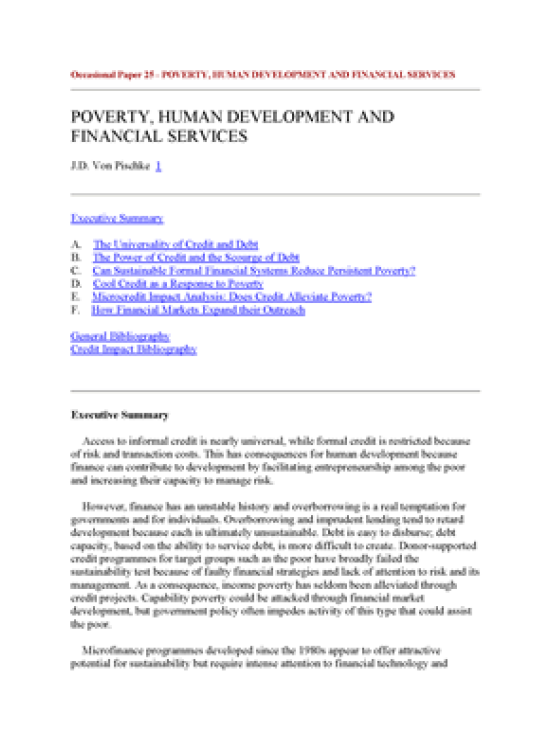Poverty, Human Development and Financial Services

Download Report by Language
Document
jdvonpischke.pdf
(154.41 KB)
Citation
Von Pischke, J.D. . 1997. Poverty, Human Development and Financial Services. New York.
Poverty, Human Development and Financial Services
Posted on: January 01, 1997
Access to informal credit is nearly universal, while formal credit is restricted because of risk and transaction costs. This has consequences for human development because finance can contribute to development by facilitating entrepreneurship among the poor and increasing their capacity to manage risk. However, finance has an unstable history and overborrowing is a real temptation for governments and for individuals. Overborrowing and imprudent lending tend to retard development because each is ultimately unsustainable. Debt is easy to disburse; debt capacity, based on the ability to service debt, is more difficult to create. Donor-supported credit programmes for target groups such as the poor have broadly failed the sustainability test because of faulty financial strategies and lack of attention to risk and its management. As a consequence, income poverty has seldom been alleviated through credit projects. Capability poverty could be attacked through financial market development, but government policy often impedes activity of this type that could assist the poor.